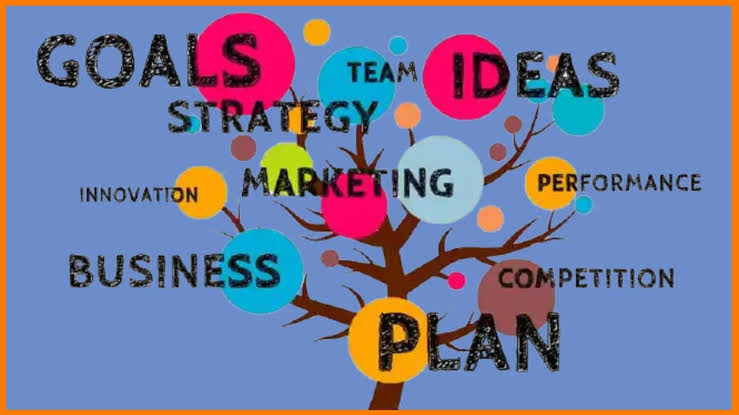While every entrepreneur brings their unique style and strengths to the table, the road to startup success requires a blend of technical, interpersonal, and strategic abilities.
Succeeding as a startup founder in today’s fast-paced and competitive landscape requires more than just a great idea. It takes a combination of strategic vision, adaptability, emotional intelligence, and practical expertise. As of 2025, successful entrepreneurs are expected to master a blend of technical and interpersonal skills to build sustainable businesses and navigate the challenges of early-stage growth. The following list ranks the top 10 entrepreneurial skills essential for startup success, beginning from number 10 and moving to the most critical skill at number one.
10. Technical Literacy
In an era dominated by technology, even non-technical founders must possess a basic understanding of how modern tools and platforms work. Whether it’s knowing the fundamentals of coding, understanding data analytics, or managing digital tools like CRMs and payment gateways, technical literacy allows founders to make informed decisions and communicate effectively with technical teams.
Startups often operate on tight budgets, and having this skill helps reduce dependency on outsourced tech work. It also empowers entrepreneurs to evaluate software options, optimize their digital operations, and adapt faster to market demands.
9. Risk Management
Risk is inherent in any entrepreneurial venture, but being able to evaluate, mitigate, and respond to risk can make the difference between survival and failure. Successful founders know how to calculate risk exposure, manage limited resources wisely, and create contingency plans for unexpected obstacles.
In 2025, this skill is more important than ever, especially as economic uncertainties, regulatory changes, and competitive threats continue to shape the global business environment. Being proactive in identifying potential problems and staying calm under pressure builds investor confidence and promotes long-term stability.
8. Negotiation and Persuasion
Whether closing a deal, attracting investors, or hiring top talent, strong negotiation skills are crucial. Entrepreneurs must be able to present their vision convincingly, defend their position, and create win-win scenarios for stakeholders.
Persuasion goes beyond sales pitches. It involves emotional intelligence, clear communication, and understanding the motivations of others. In the startup world, where every partnership or opportunity could shape the future of the company, mastering the art of negotiation is essential to opening doors and building momentum.
7. Financial Literacy
Many promising startups collapse due to poor financial management. Founders must understand budgeting, cash flow analysis, pricing strategy, break-even points, and investment evaluation. While hiring a CFO or accountant helps, the founder must still be financially literate enough to make strategic decisions.
In 2025, access to financial data is easier than ever thanks to modern tools, but interpreting that data correctly requires skill. Entrepreneurs who can align financial performance with strategic objectives are better equipped to scale and sustain operations.
6. Time Management
Startups require managing multiple roles, tasks, and deadlines with limited human and financial resources. Effective time management ensures that founders prioritize high-impact tasks, avoid burnout, and maintain focus on long-term goals.
In the early stages, founders often handle product development, marketing, hiring, customer service, and admin work simultaneously. Time-blocking, delegation, and using automation tools can help maximize productivity. In 2025, with remote work and digital distractions increasing, this skill is more vital than ever.
5. Strategic Thinking
Strategic thinking enables entrepreneurs to see the bigger picture. It allows them to align daily operations with long-term goals, anticipate industry shifts, and stay ahead of the competition. This skill involves research, data interpretation, and scenario planning.
Strategic thinkers don’t just react to market changes—they predict them. They build scalable models, focus on product-market fit, and prioritize actions based on measurable impact. As markets evolve rapidly, being able to make smart, forward-looking decisions sets top entrepreneurs apart from the rest.
4. Leadership and Team Building
Startups succeed or fail based on the strength of their teams. A great leader doesn’t just manage people—they inspire, align, and cultivate talent. They build cultures of accountability and innovation, and they know how to attract individuals who complement their own strengths.
In 2025, as remote and hybrid teams become more common, leadership also requires mastering virtual collaboration, asynchronous communication, and creating inclusive environments. A founder’s ability to lead during uncertainty and motivate a diverse team is a direct driver of startup performance.
3. Problem-Solving Ability
Challenges arise daily in a startup’s journey. From technical bugs to regulatory issues to customer churn, problem-solving is a constant necessity. Founders must develop an analytical mindset that identifies root causes and explores creative, actionable solutions.
Startups that survive don’t always have the most resources, but they usually have the best problem solvers. In a highly competitive environment, the ability to turn setbacks into breakthroughs is often what fuels innovation and resilience.
2. Communication Skills
Clear, consistent, and compelling communication is a non-negotiable skill for startup founders. Whether writing investor updates, pitching to VCs, or speaking with customers, effective communication ensures that the vision is understood and trust is established.
This skill also fosters team alignment, reduces conflict, and improves customer satisfaction. In 2025, where communication happens across multiple platforms—emails, video calls, social media, live pitches—being able to adjust tone, language, and message for different audiences is critical.
1. Adaptability and Resilience
The number one entrepreneurial skill in 2025 is adaptability. Markets shift. Technologies evolve. Customer expectations change. Founders who are flexible in their thinking and resilient in the face of adversity are the ones who survive and grow.
Adaptability means being open to feedback, willing to pivot, and capable of leading through uncertainty. Resilience means staying motivated through failure, managing stress, and bouncing back from setbacks. In the unpredictable world of startups, these twin traits are foundational to long-term success.
